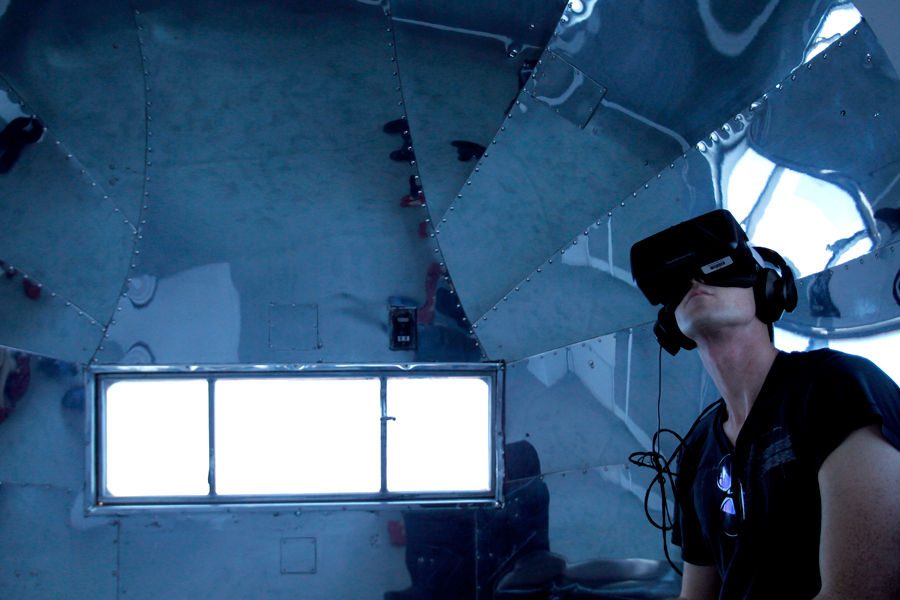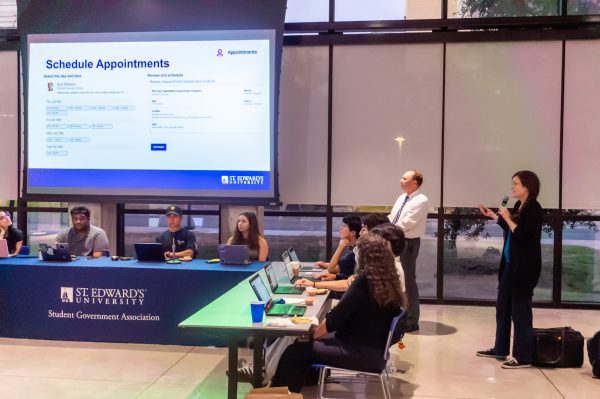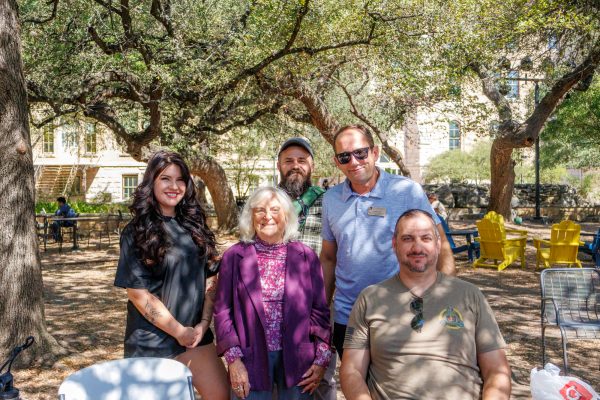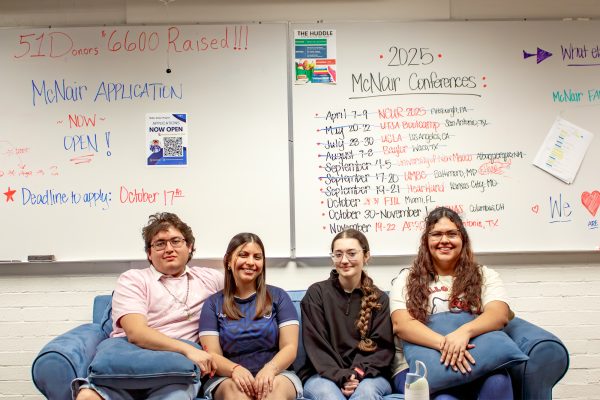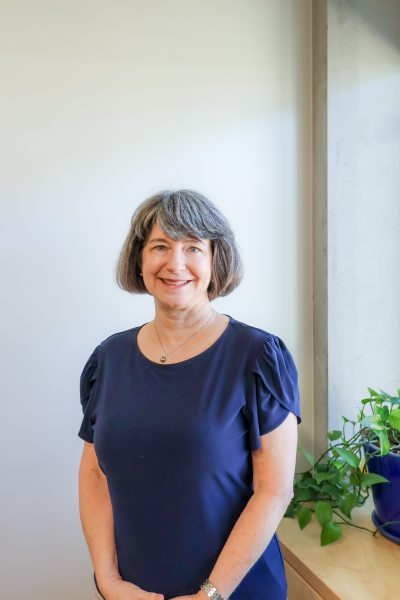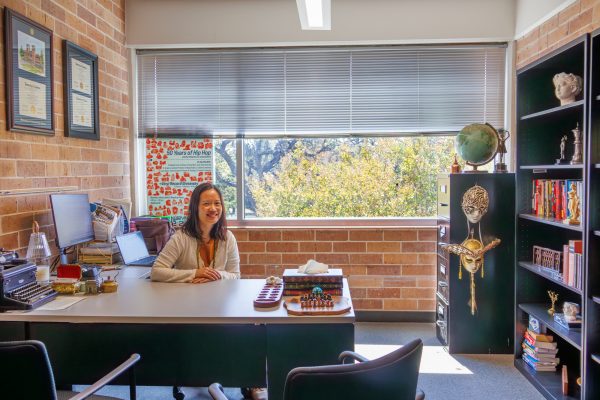Oculus Rift provides research opportunity for psychology students
The Oculus Rift is still not available for consumer use. In order to receive a Rift, Antunez had to submit his request and wait 4 months for it to arrive.
Cody Antunez always knew he’d be changing worlds in college — virtual ones.
“In all honesty, I didn’t know what I was getting myself into,” Antunez, a senior psychology major, said.
In his last semester at St. Edward’s University, Antunez did not want an easy end to his college career. A typical day for him is filled with his on-campus job at the Student Disabilities Service Office, followed by classes and ending with hours of work on his research study.
Antunez is a psychology major, but he is also interested in technology. When he found himself in professor and chair of psychology Alan Swinkels’ statistics class, Antunez found a bridge for his love of tech and psychology.
“I didn’t know him very well; I just liked him. He liked tech and I’d walk up and talk to him about it after class,” Antunez said.
When it came time to take a Research and Field Experience class, Antunez had an inkling of what he wanted to do, and he knew just who he wanted to ask about mentoring him. Asking someone to be a mentor is asking them to commit a tremendous amount of time, so Antunez was careful and chose a project he could be passionate about, he said.
“I had a burning desire to do something related to tech development, so I made a deal with myself,” Antunez said. “At first I wanted to use Google Glass, but that’s extremely expensive, so I looked into the Oculus Rift.”
The tech company developing the Rift is Oculus VR. The Oculus Rift is a virtual reality head-mounted display. Most have heard of the Rift from its origins as a Kickstarter funding project. Kickstarter is a funding platform which allows users to pledge funds. The Rift raised $2.4 million.
“What I like best about this project is the cutting-edge aspect. We’re working with technology that most people have never seen before, but technology that holds the promise of lots and lots of people seeing it soon,” Swinkels said. “By all accounts, the Oculus Rift is going to hit the market in a big way.”
The Oculus Rift is still not available for consumer use. In order to receive a Rift, Antunez had to submit his request and wait 4 months for it to arrive. Because Rifts are currently in the hands of developers, there are not many programs available. During the transit period of the Rift, Antunez learned some coding skills.
Antunez’s biggest resource for learning coding languages such as Python and Java was YouTube, Antunez said.
“YouTube is not just for watching LolCats; it’s such a good learning resource,” Antunez said.
July was when Antunez finally got to test his skills out with his Rift. The tests he has his subjects run through are essentially built by him. Overall, the test takes about 30-40 minutes, said Antunez. He had about 50 people sign up — all from Swinkels’ statistics class.
For now, Antunez has three different levels to his tests: easy, medium and difficult. He sends his subjects through two timed tests. One is a manual test which allows the user to get used to controls and then sends them to do tasks. The other is a cognizance test which proposes various mental tasks the user must complete.
“We are curious about how the Oculus Rift might be used in dangerous work environments, such as manipulating equipment on an offshore oil rig, handling volatile chemicals in a manufacturing plant, or operating sensitive equipment in a nuclear reactor,” Antunez’s “What Was the Study About?” fact sheet says.
Although Antunez’s project looks into more practical uses of the Rift, many don’t look to it for the same use. This is one of the reasons Facebook acquired the Oculus VR company in March.
“I really think it has a chance to change the entertainment industry,” Antunez said. “It just holds so much value.”
Antunez is grateful to have a chance to work with the Rift, but he is also excited about the opportunities he has gotten from St. Edward’s.
As a transfer student, Antunez did not find it difficult to fit in and try to take advantage of all that St. Edward’s offers. From research opportunities to mentorships, Antunez took all the opportunities he could.
“I think it was a unique opportunity here,” Antunez said. “I told them ‘I’m here, let me do this,’ and they gave me a room (to do research in).”
Among the myriad of reasons Antunez gave for his love for St. Edward’s, one that he consistently went back to was the hands-on approach of the faculty.
“It’s important for students to have mentorships; one of the things I have experienced here is the quality of the faculty,” Antunez said.
Follow Sara for more!

